Community health volunteer wades ‘river of life’ to give hope to people living with HIV
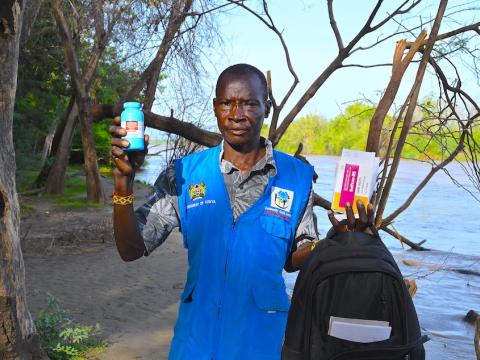
By Sarah Ooko, World Vision Senior Communications & Media Officer, Kenya
The waters of River Turkwel flow smoothly past villages in Turkana County, hopping over rocks as they meander through trees from a forest surrounding the river.
It is a few minutes past eight o'clock in the morning. The risen sun is shining its rays on the surface of the water, making it glitter like diamond.
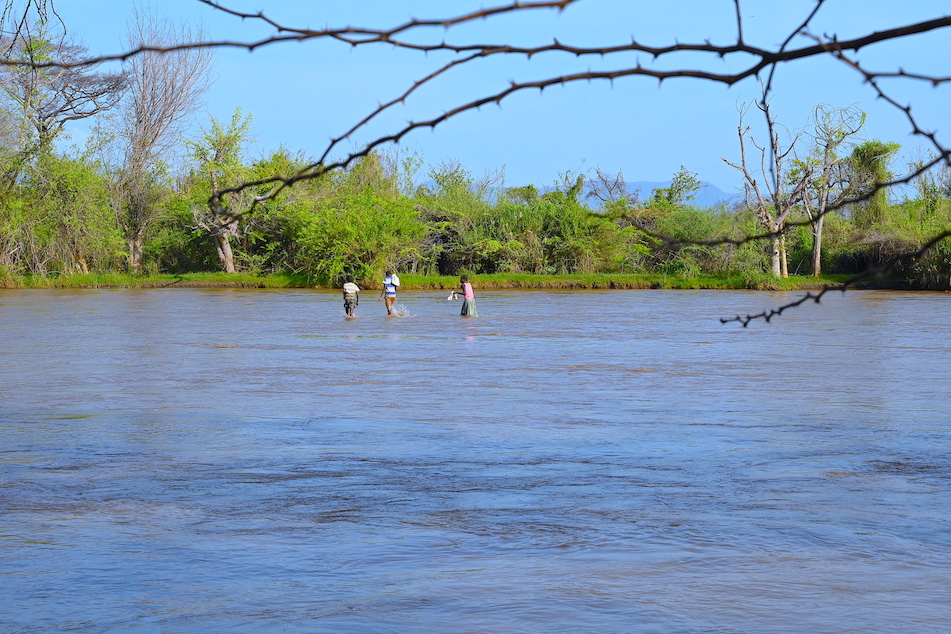
Along the banks, residents trickle in - mostly women and children - to fill their empty jerrycans with water that will sustain them throughout the day.
Aside from cooking and washing, the villagers rely heavily on the river to sustain their livestock and crops, which they depend on, for food and income generation.
But to John, a community health volunteer (CHV), the river is much more than a source of livelihood. This water body connects him to people living with HIV that he mentors, supports and cares for, in his community.
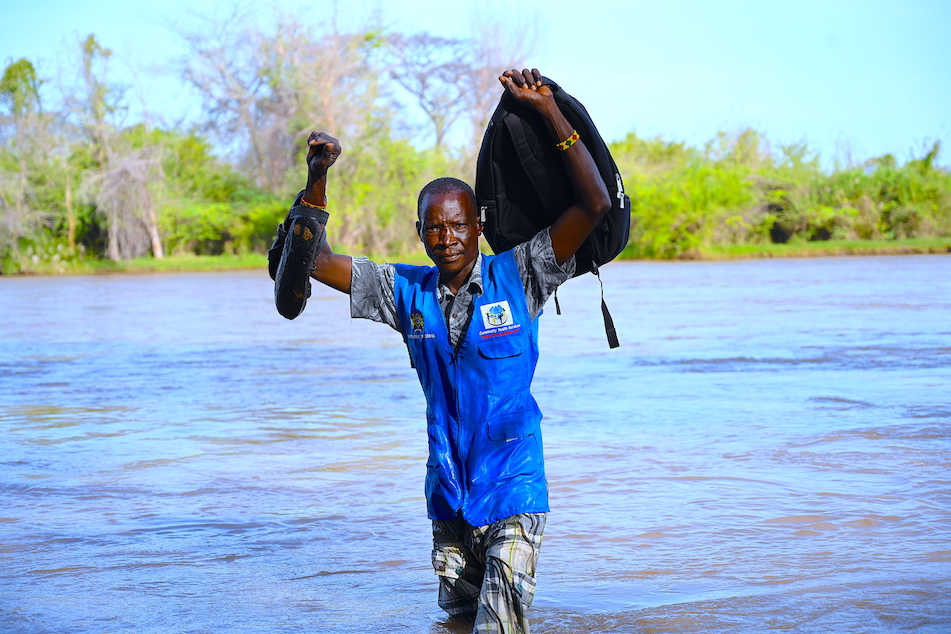
John is among the many CHVs in Turkana County who have been empowered to offer home-based care services to people living with HIV through the support of World Vision, The Global Fund and Kenya Red Cross Society.
At different times each month, he crosses this river on foot, ferrying lifesaving antiretroviral (ARV) drugs that people living with HIV rely on for survival.
Donned in his official blue CHV jacket, with trousers folded up to his knees and a backpack held up high to cushion it from water splashes, he embarks on this journey that brings him closer to the people he serves in the Katilu area of Turkana County.
An alternative route to the targeted villages through a foot bridge would take much longer, denying him the opportunity to spend more time with the families he cares for. Vehicles or motorbikes are better options but they would require John to incur transport costs which he cannot afford.
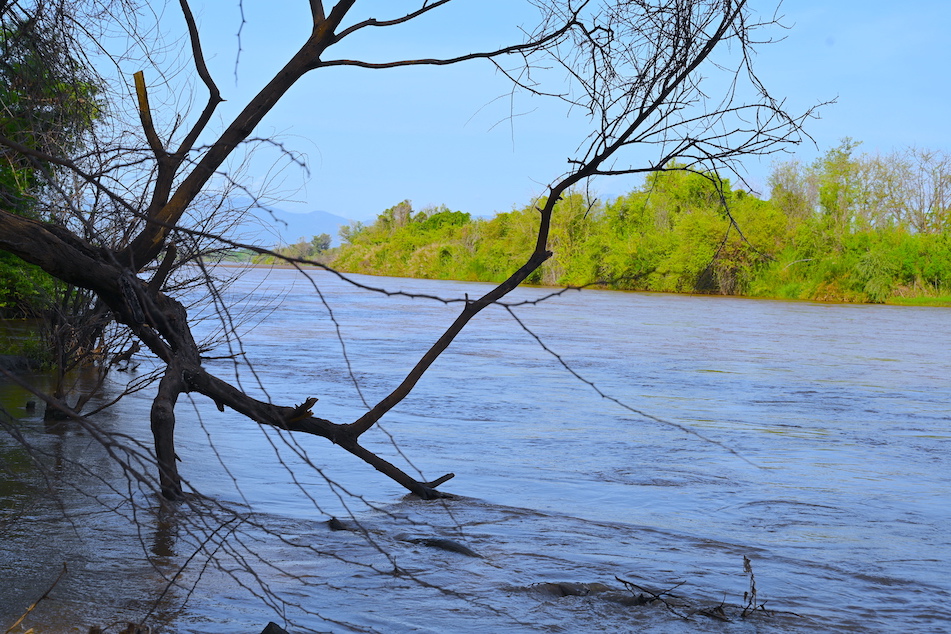
“I consider this as the river of life. It is very important to me as it provides a shortcut that allows me to reach the people I serve quickly. This river has made it possible for me to take life-saving ARV drugs to people living with HIV that rely on them for survival,” says John.
He notes that he has learnt to study the river patterns. “I know when it’s safe to cross over and when to keep away, especially when the water levels are high and the flow is rapid,” says John.
Just like other CHVs in the country, John is not on payroll. He is driven solely by his passion to serve his community and make a difference by improving the health and well-being of the residents.
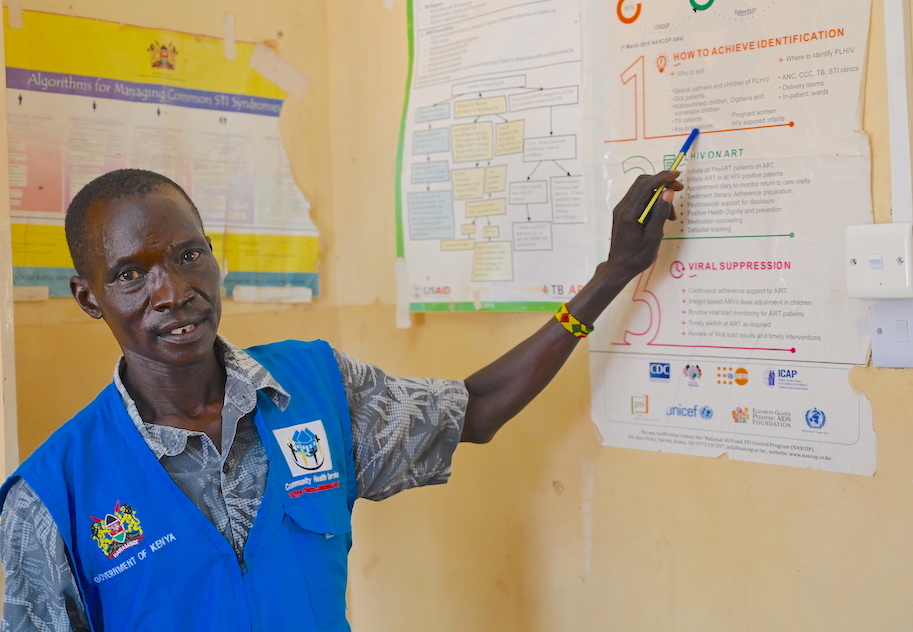
They say that it is only the wearer of the shoe that knows where it pinches. This is the case for John, who has been living with HIV for seven years.
"When I discovered that I was HIV positive, I was scared and thought it was the end for me. But I survived through counselling and treatment with recommended ARV drugs. I also struggled with stigma but was able to overcome it and go public with my condition. Now I lead a healthy and happy life. And this is what I want for people living with HIV in my community," he says.
Together with fellow health volunteers, John makes great sacrifices to give hope and support people living with HIV in his community.
"The health facility is far away, which makes it hard for some people to collect their ARV drugs. Also, due to stigma that still prevails in the community, some people do not want to be seen accessing services at HIV clinics. Yet, the drugs are extremely important for their survival and well-being. So, I take it upon myself to get the ARV pills from the hospital and deliver it to them," he notes.
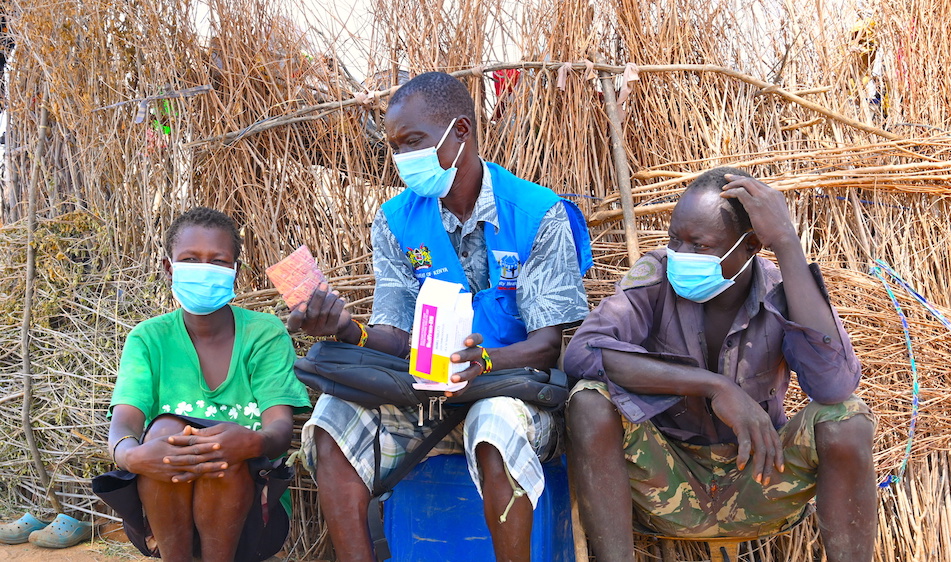
Aside from the drugs, John also offers nutrition guidance to enable people to embrace balanced diets which together with the drugs, play a key role in improving the health and well-being of people living with HIV.
"I also give psychosocial support or counselling to encourage people to adhere to treatment as well as other HIV care guidelines, so they can continue to be healthy and be able to lead normal lives like other people. I encourage them to embrace their status and keep hope alive at all times," he states.
Turkana is among the top ten Counties with the highest number of HIV cases in Kenya. Yet, treatment success rates in the region are the lowest in the country.
A huge contributor to this challenge is the high number of people defaulting on their ARV treatment, which helps the body to fight the HIV by curtailing its multiplication.
The hard work and commitment of John and other community health volunteers who are offering home-based care, has helped to increase adherence to the HIV treatment drugs.
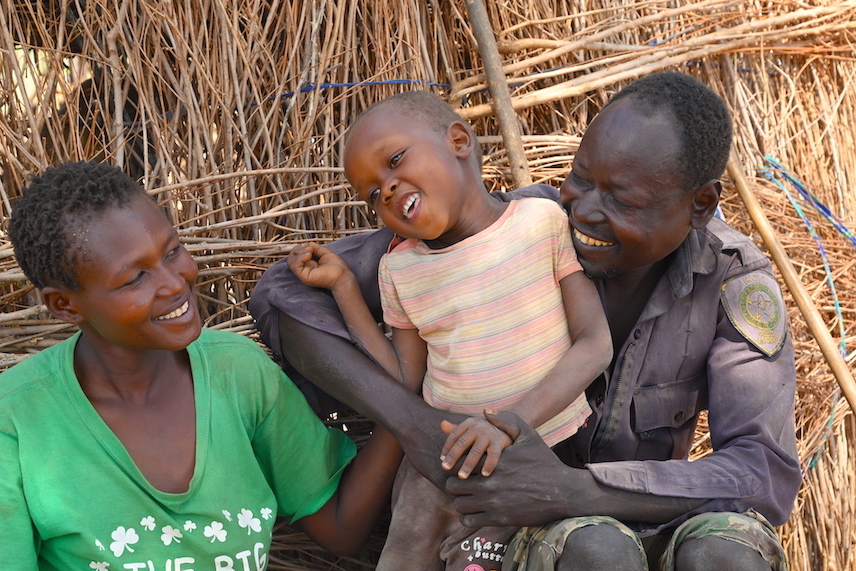
"John has really helped people like us who are living with HIV. He always visits us and takes time to listen to our problems. This means so much to us. And we have trust in him as he understands what we are going through since he is also living with the disease," says James who is among the many beneficiaries of John's services.
His wife Regina is also HIV positive. But all their children were born free from the disease, thanks to John's guidance, which encouraged her to enrol for the Prevention of Mother-to-Child Transmission (PMTCT) of HIV services at the local health clinic.
"I always take my ARV drugs while I am pregnant. Then, once the baby is born, the child is put on HIV preventive drugs for six months. I am also advised to exclusively breastfeed the child for nine months. Because of following these guidelines all the time, I am happy that all my children are healthy and free from the disease," says Regina.
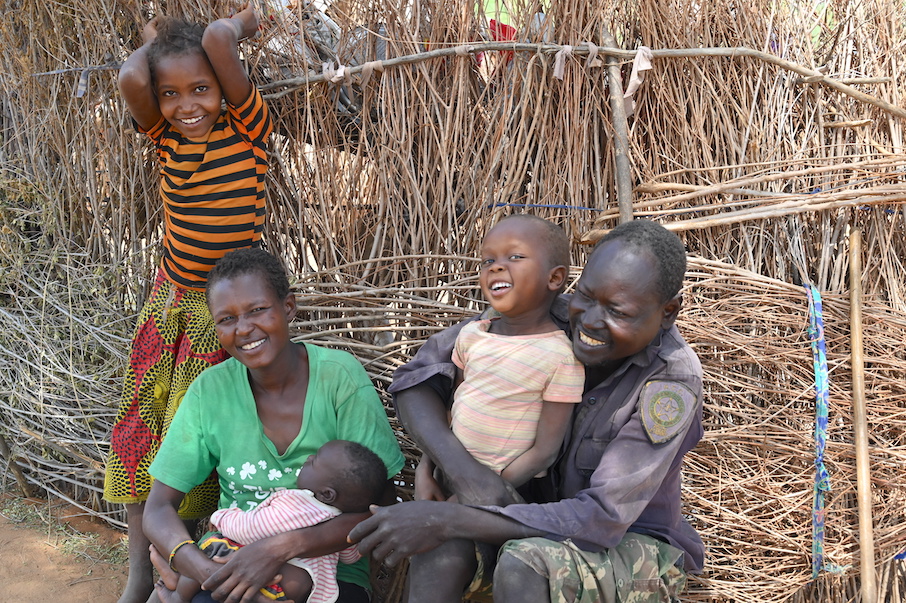
These are the stories of change and hope that inspire John and motivate him to continue serving his community selflessly.
He always has a big smile on his face as he crosses the 'river of life' to go back home, after a long day spent serving his community.